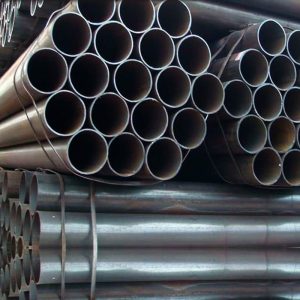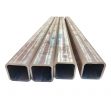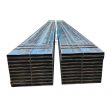How to protect your steel pipe from corrosion in applications
As a rule, corrosion has a variety of negative effects on metal. When metal structures suffer from corrosion, they become unsafe and are much likely to cause accidents, such as collapses. As we all know, round steel pipe is a very important building material, widely used in the construction field. In the actual procurement, customers tend towards certain strict requirements for the quality assurance of the pipe. Even minor corrosion requires repairs and maintenance. In fact, the annual direct cost of metallic corrosion is approximately $2.2 Trillion USD worldwide!

With reference to any common steel pipe in the current steel pipe market, rust is a very common phenomenon and potential problem in the practical applications in life. Generally speaking, the corrosion of steel pipe and its related components is a continuous and virtually unstoppable process, which is a result of the material deterioration caused by lasting environmental interactions. Furthermore, as a natural phenomenon, it tends to require three conditions: moisture, a metallic surface, and an oxidizing agent known as an electron acceptor. A common form of corrosion is rust. In the pipe processing, most steel pipe manufacturers will a specific treatment for pipe as per different requirements of customers. Paint coatings serve as a barrier to prevent the transfer of electrochemical charge from the corrosive solution to the metal underneath.
While all metals corrode, it is estimated that 25-30% of corrosion could be prevented using suitable protection methods. Hot dipped galvanized steel pipe has been considered popular a lot among many users today. For one thing, the galvanization process protects the steel from rusting damage that can occur during transportation, installation and service. The zinc layer on the surface of pipe can form a barrier protection for steel products to extend the service life in applications. For the other thing, this layer is also resistant to wear and scratch, which makes the steel look more attractive. Testing and studies have revealed that the average life expectancy for galvanized steel used as a typical structure material is well beyond 50 years in a rural environment and 20-25 years or more in an extreme urban or coastal setting. In recent years, design modifications can help reduce corrosion and improve the durability of any existing protective anti-corrosive coatings. Ideally, designs should avoid trapping dust and water, encourage movement of air, and avoid open crevices. Ensuring the metal is accessible for regular maintenance will also increase longevity.
Tel: +86 18202256900 Email: steel@tjdpbd.com









